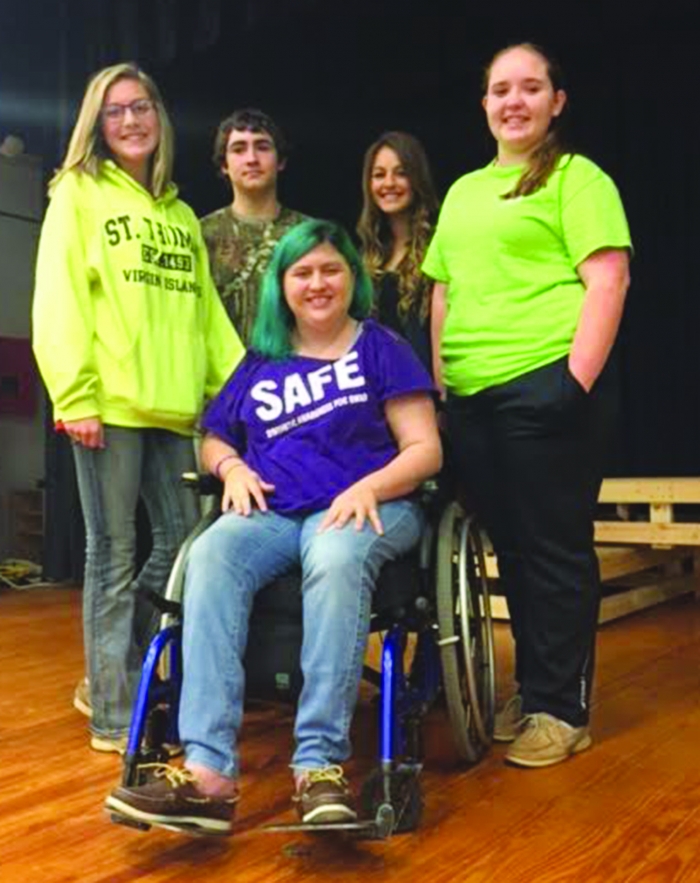McLeod students learn dangers of "Fake Pot"

By Bobby Horn Jr.
On Jan. 11 middle school and high school students at McLeod ISD got an up-close look at the devastating effects of synthetic marijuana.
While there are those who claim it is fate Emily Bauer knows the truth. Bauer suffered multiple strokes and almost lost her life due to synthetic marijuana. Now she and her mother, Tonya, travel throughout Texas as well as the rest of the nation, telling students about the dangers of synthetic marijuana.
“They have been on national news networks including an interview with Katie Couric to help spread their message,” Kathy O'Kelley, McLeod ISD Counselor said. “When asked what advice she gives students about using synthetic marijuana or any drugs she said, ‘Don't do it. It is not worth it. Even if you use regular marijuana, someone can substitute synthetic marijuana without you knowing it’.
Emily and Tonya have created "SAFE" as a means to spread the word about the dangers of synthetic marijuana. In addition to a Facebook site, they also created a website “SAFE4EMILY”
Known by such colorful names as Spice, K2, Bizarro, Yucatan Fire, Skunk or Moon Rocks, health officials says that fake marijuana is becoming a serious health concern for students.
Fake marijuana, or Synthetic Cannabis, is a variety of herbal mixtures that is said to produce experiences or “highes” similar to marijuana. These products are marketed as "safe," and legal alternative to the illegal-in-some states Cannabis sativa.
A 2014 survey conducted by the University of Michigan showed that while marijuana was the most popular illicit drug of choice for teens, fake marijuana was the second most tried drug among students in grades 8 through 12.
Synthetic marijuana is ingested in a similar manner to cannabis, either smoked alone in a joint or other device, such as a pipe or a bong, or rolled into a joint with tobacco or natural marijuana. Synthetic pot may also be baked into foods, such as brownies or made into tea.
Users report experiences similar to those produced by natural marijuana -- elevated mood, relaxation, and altered perception. Health experts say the effects can be stronger than those of natural marijuana due to the synthesized chemicals. Some users report psychotic effects like extreme anxiety, paranoia, and hallucinations.
In August 2013, a team of epidemiologists from the Health Studies Branch at Centers for Disease Control and Prevention (CDC) began working with the Colorado Department of Public Health and Environment (CDPHE) to investigate reports of illness from smoking synthetic marijuana in Colorado. Metropolitan Denver emergency rooms treated more than 180 patients who likely had used synthetic marijuana. These patients commonly experienced altered mental status and increased heart rate.
On Nov. 11, 2014 Texas State Senator Joan Huffman (R-17) of Houston filed a bill that would “designate certain chemicals referred to as synthetic cannabinoids as controlled substances.” On Jan. 27, the bill was referred to the Senate Committee on Criminal Justice, where Huffman serves as vice-chair. In 2013 Huffman filed a similar bill which passed in the Senate. However, the legislative ended before bill could come up for a vote in the House.
- Log in to post comments







